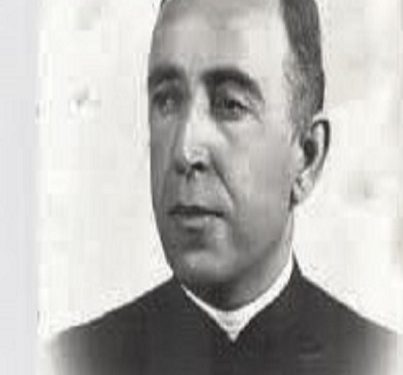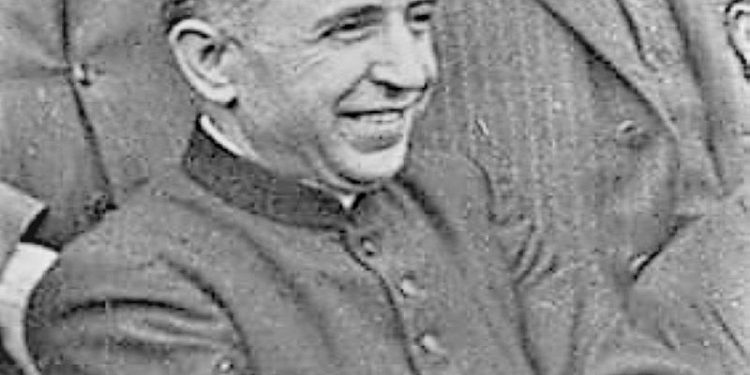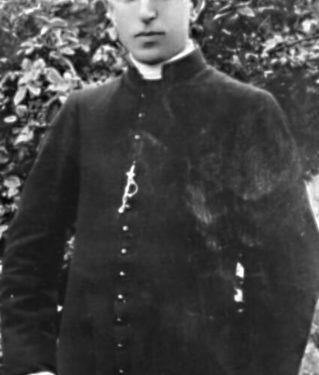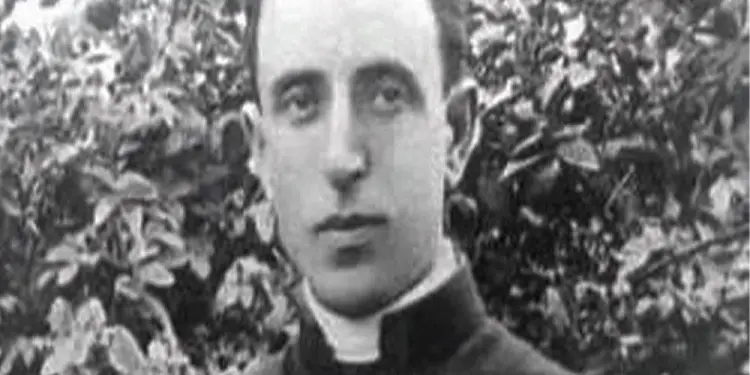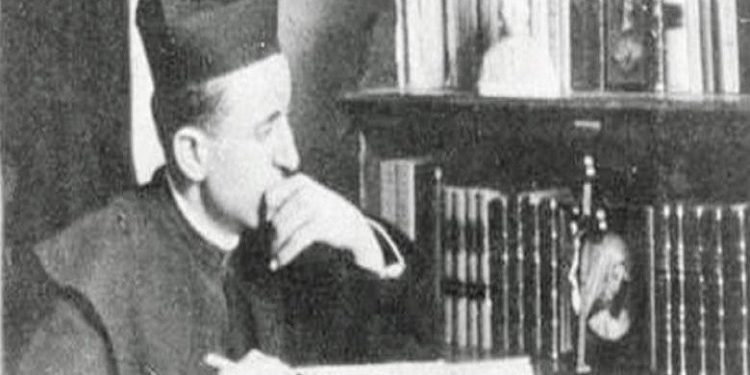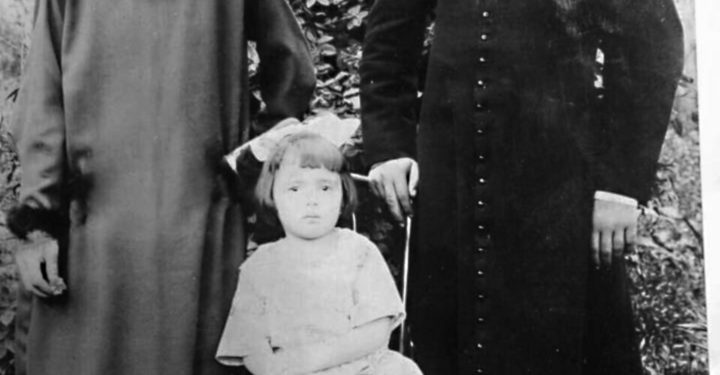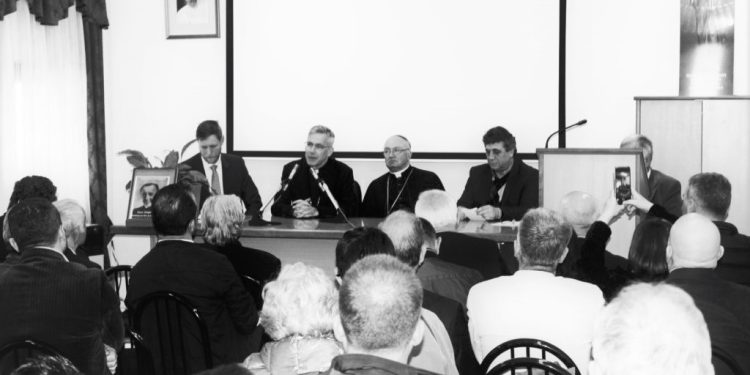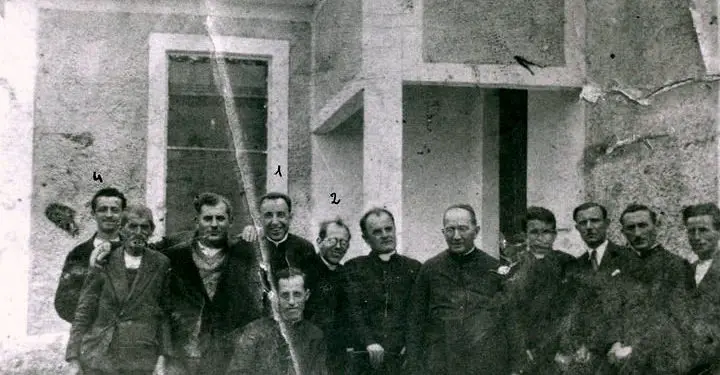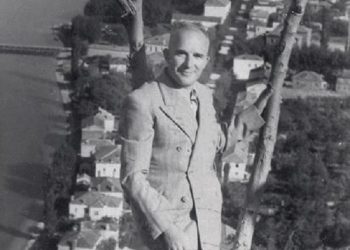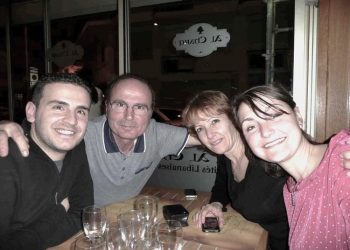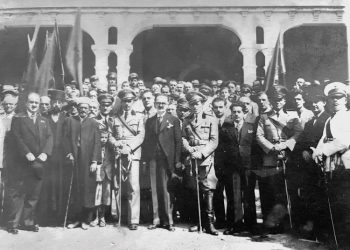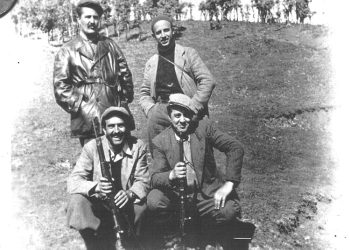NIKOLLË LOKA
Av. ALFDRED DUKA
NIKOLIN KURTI
Part fourteen
WHY DOES THE POLITICAL ACCUSATION OF COLLABORATION NOT STAND?
-Continuing the tradition of native Catholic clergy –
Continues from last issue
Cooperation for the state and only in its interest
While serving the sentence
Memorie.al/The dissatisfaction of Dom Shtjefën Kurti, after his release from the first imprisonment, comes from the fact that he is not recognized by the Albanian communist state, the patriotic activity he has carried out in Kosovo, ranking himself rightly as a renaissance. As we will see below, regarding this attitude of the Albanian state, he sent a letter to the Prime Minister of the time, Mehmet Shehu, who did not even deign to reply.
REPORT
On January 1, 1964, after I met the one called Dom Shtjefën Kurti, who had been released from the political prison before, we found ourselves alone in Qëlë, because the priest had gone out for his cattle, and among other things, Shtjefën told him : I’m getting very bored because I can’t find the way I spent my time. I asked the government to give me the right to exercise my profession, so that we could have the priestly service in a church. As a priest, I don’t have the daily need for bread, so I have to provide that to brother Keli. Then, Shtjefni added, I addressed Mehmet Shehu with a personal letter, showing him the service he had done in Kosovo, when he was there as a priest.
Regarding the evaluation of the patriots of the Renaissance, especially for those who worked for Kosovo, he had evaluations, some right and some wrong according to him. Shtjefni says that: “I worked for Kosovo when I was there, and for that reason I left at the time of Zog”.
Shtjefni let me understand that he was sorry that he is not on the list of those who have worked for Kosovo and that politics at any time has its own reason and value. If someone performs his activity for the time he worked, the government for that time evaluates people that way, so his (Secretary’s) work should not be unfairly rejected. Shtjefni continued the conversation, saying that: when Yugoslavia came here, one of the so-called senior leaders, Stoniq, invited me to meet with them, and I did not understand the purpose of his arrival. When I started the conversation, that Yugoslav told me: Dom Shtjefa, we will talk without gloves. Not without gloves, I told him.
Then Shtjefni tells him in the conversation: You Yugoslavs benefited from having a stake in politics, the leader of the Communist Party in Albania, and so with your cunning you were able to steal Kosovo, handing it over to you. Not only that, but apparently, you are also turning Albania into a republic dependent on you like Montenegro. As for looting (without an official form), like everything, the boss and the blind person understand it. The Yugoslav diplomat, when I told him those words, raised his shoulders, lowered his eyebrows in surprise, but did not let me understand his political function. He told me that: you will forever remain for us, an evil politician. When he used these words, Shtjefni said that: the priest was hearing it from my own mouth, after strangers told him I went to prison and no one asked me, I told him the story of my life.
Received from the Operating Office,
Captain Palush Osmani
Given the associate “Address”
Dated 11/11/1964
Tasks:
Meet with Dom Shtjefni and talk to him saying, see, adjust the game of your profession. In my opinion, I say that there is no strong friend there from Tirana, who is able to help you get the profession. You know that they do not support the religious issue.
Regarding the contact he had with the representatives of the Yugoslav Legation; say that since then they seemed not to get along well with ours. I was surprised that now they are completely furious and I have not seen them walking around from Milot. How are things? Say this visit is playing an important role and Khrushchev and his friends are not feeling it at all! How is the matter, it is not known!
Clarifications:
Dom Shtjefni is from Gurëz village, he was once a priest; he wants to become a priest again. Talk about the situation and close the meeting with the Yugoslav legate.
Operational measures:
This report should be printed in two copies, one to be sent to the Kruja Internal Affairs Branch and the other to be placed in the information evaluation file.
Operative Office
Captain Sadush Osmeni
Given “Address”. date 24/11/64
REPORT
Dom Shtjefni, around 21/11/1964, told him that I met the functionary of the Yugoslav Legation once, on that occasion when he asked me to meet and sometimes another time. We talked about Yugoslav politics in general and towards Albania in particular, but time did not let us, because it didn’t go long and after the meeting with him, I was arrested.
“Address”
Tasks:
Meet with Dom Shtjefni and talk about his work relations, telling him that: of course you want to practice your profession, but what do you mean by that, even this work is not a thing, that the people are completely separating themselves from religion, here you go relate the age, say it’s better to continue with another profession. Say that I haven’t seen those of the Yugoslav Legation for a long time. They used to come here from Milot, it seems to me that they don’t have things in order.
Operational measures:
I will talk to the Operative Worker of Milot, to clarify who this Dom Shtjefni is, what village he is from and when he came to Gurëz village, when and why he entered prison, why he was accused and if necessary I will meet him, if this is about the Yugoslav Legation.
This report should be printed in one copy and sent to the Internal P. Branch, Krujë.
Taken from P. Op. Sadush Osmani
Given by the collaborator “Adresa”, date 19/X/1964
REPORT
He met with Dom Shtjefën Kurti, who lives in Gurëz, who told him that he received (indirectly) a negative response from the Prime Minister, for the request that he sent directly for the interest in granting the right to exercise the service as a priest in a church. During the conversation, there was a conversation about the priest of the church of Shënkolli, for whom Shtjefni told him that I was in prison at that time and that during that time I had frequent social conversations, in whose person, just like in the vast majority of Catholic clergy, anti-communist views prevail, but added the priest, since I got out of prison, I know very few things, to say nothing of his views and behaviors in the exercise of the profession and especially in relation to the attitude towards politics of today’s state and society. Somewhere out of fear of not catching the eye of the Security authorities and due to the fact that he is a Jesuit (friar), I did not consider it appropriate to pay him a visit.
In the second meeting he had with Shtjefni, he told him that I have left cohabitation with my brother, Kel, because he constantly speaks compromising words, which harm me more than him, if they fall on the ears of the Security authorities, due to the fact that I was once in prison and due to the cultural level, that compared to them, they count me as mistakes. This is also a reason that I can no longer talk freely even with my brother and I have a limitation of conversations even in society, with anyone. “Address”
Tasks:
Meet with Dom Shtjefni and continue the conversation, starting with the issue of Khrushchev, telling him that the job that Khrushchev was replaced by others is not simple, that he should not have surrendered his duty in this situation, I think that the overthrow of it will be the result of the pressures exerted by different peoples, I wonder why it is not talked about longer. Say that my desire is great to meet the priest of Shënkolli, I have been told that he is very good, he gets along well with the people there.
Operative measures:
This report is printed in one copy and sent to the Internal P. Branch of Kruja.
Operative Office
Captain Sadush Osmani
Provided by agent “Day Off”
Taken from the Operational Workshop
Major Mane Rrukaj
Tirana, on 31-XII-1964
REPORT
On 29-XIII-1964, Monsignor Çoba came from Shkodra to Tirana, around 12:30, together with the officials of the presbytery: Zef Simoni, Kolec Toma and the driver Tonin Palin. Çoba told him that Dom Shtjefën Kurti, who lives in Gurëz village of Milot, had come with him and will come here soon. When he reported to Çoba, on some issues of the Church, Çoba, after thinking a little, told him that: we will leave it as you think, until the matter of Dom Zef Bici is finished.
He has asked Çoba for permission to say four masses a day, or not! Çoba shrugged his shoulders and later said: I will continue once, but there is no need to call P. Marjan Prelën for help. He again asked Çoba for permission for the coronation of mixed couples, Catholics with Muslims and vice versa, for baptisms, marriages with Orthodox, etc. Çoba did not oppose him and told him that: the Church itself is not so opposed today, but ordered him to act and when it is not possible, to deal with him quickly.
After a while, Dom Shtjefën Kurti arrived and after the usual greetings, Çoba behaved in vain, while Dom Shtjefën, in order to address the assembly that they had made in the car on the road when they arrived, said: All the clothes, furniture and other things of this church as : books and others, they are mine and the building itself, like the building, is hit with my money. For these I paid 100 paper napoleons and 50 gold napoleons. Of these, 25 was given to me by Monsignor Prenushi and he told me that: “I have not been given any more”, but I thank the honor of Dom Mark Dushi and Dom Zef Bici, who helped me because I was in prison and did not I would never mention these things if these two were here, but now I’m on the big road and I need the money.
When he asked where you found this money that you spent, Dom Shtjefni answered: I had money back then, because the Italians let a lot of money, so I have 25 napoleons a month from Zog and I think from Italy and now I have nothing. I was going to get out of prison in 1959, with all the rights and today I would be a parish priest, but these people let me in and today I was left on the streets. During this conversation, Çoba did not speak at all. Later, the talks turned to simple religious issues: but after a while he showed Çoba a statement by Dom Zefi, which he had found in a notebook, where he talked about the letters he had received.
He also reported an illustrated postcard, which came from Italy for Dom Zefi, with the image of the new Pope, which he had found inside the books. For the postcard, Çoba told him that he will ask Reshat to enlarge and reproduce it and he took it with him. In addition to the above, Çoba also told him about the conversation he had with Reshat in the Prime Minister, that: “he did not give me any hope for the wearing of jackets, while for the passporting of Dom Ndoc, as after the prayer you made, there is a possibility To be fixed. Within the day he left for Shkodër, together with the two clerks and Dom Shtjefa Kurti.
“Holidays”
The task was not given to the agent, because a line of conduct is being prepared for this and will be given to him in a meeting with the Head of the Branch or one of the Deputy Directors.
Operational measures:
The data should be printed in three copies, one to be sent to Shkodra for Çoba, one to Kruja for Dom Shtjefën Kurti and the other to be placed in the Çoba fascicle.
Tirana on 3-I-1969
Operating office
Major Mane Brakaj
Top secret
Notes extracted from the court file of Shtejfën Kurti
I, the Operative Worker of the P. Brendshme Krujë Branch, pulled and studied the court file of Shtejfen Kurti, Gurëz village and found that:
Shtjefën Kurti was born in Prizren, graduated from the Faculty of Theology, was a priest by profession, was arrested on 17.4.1947 and sentenced to 20 years in prison and the loss of civil rights for 5 years. From the study of the file, it appears that Shtjefën Kurti had a relationship and met with:
- General Hudson of the English mission
- The Archbishop of Durrës, Vincenc Prenushin
- His servant Rrok Oboti
- Colonel Palmer of the English mission
- Major Smith
- Tish Shirokë from Shkodra who lived in Tirana and worked at Radio Tirana, who knew English and was hired as a translator.
These people asked Shtjefën Kurti about the people of Gurezi and he told you that Enver Hoxha has a school, while there are others, like Tuk Jakova, who was a worker and won his position with a rifle.
- Jacobs of the American mission
- Anton Stevens (Ndoc Gjonleku)
- The American citizen has sent letters to Stjefni.
- Andon Dukagjinin, with whom Shtjefni made a report in 3 copies. Shtjefni himself printed it with his car and sent it to the American and English missions. This report was about the situation of North side refugees inside the country.
- Majorin Visdrai, chief of the French Mission.
- Brioti, member of the French Mission. They asked him if he knew Ymer Dishnica and through them Shqefni sent letters to the Vatican in Rome and received them from there.
- It has connections with all the heads of the French Mission.
- Father G…
- Father Peter Meshkalla
- Migrisen, the fugitive, went to Italy and sent 7,000 dollars to pay the priests.
- Father Danieli Korçë
- Pope Petrarca
- Dom Anton Zogaj
- Nush Prendi, ex-policeman.
He had meetings with Father Meshkalla, Gjadri, Father Gjon Karma, and Father Pashko Prenga
- Nush Radovani told him that there is no Catholic without a Party
- Marta of Preng Pasha gave him a lek to take mass for the former General, Preng Previzi.
- Sami Qeribashin connected between Anton Dukagjin.
Similarly, in the material of the file it was said that: Shqefan Kurti during the time of the occupiers, he was an agent of Jakomon and collaborated against the National Liberation Movement. After the liberation, he connected criminals with foreign missions; participated in the party created by Sami Qeribashi.
They prove that it is the same as those in the court file. Memorie.al
The next issue follows




